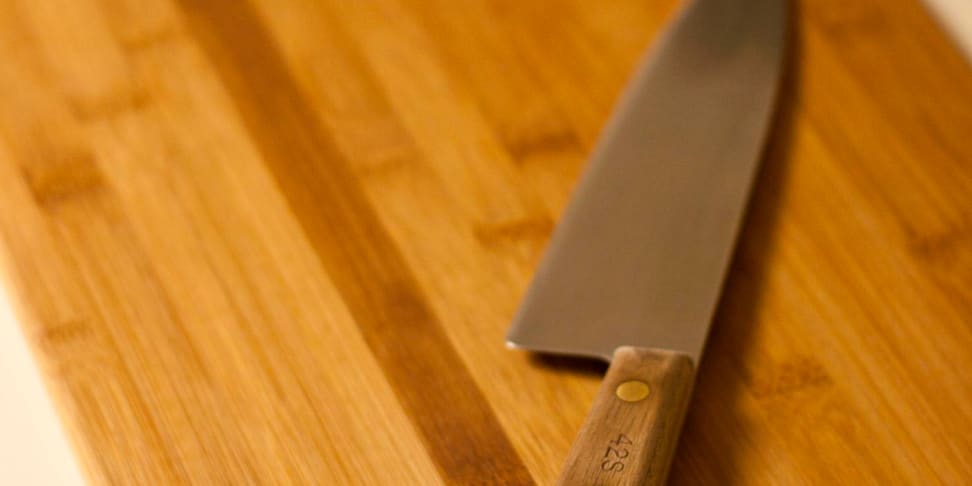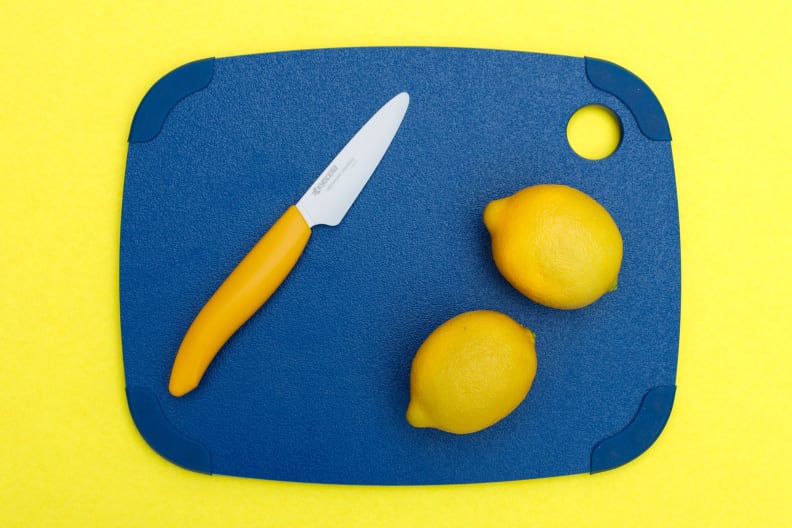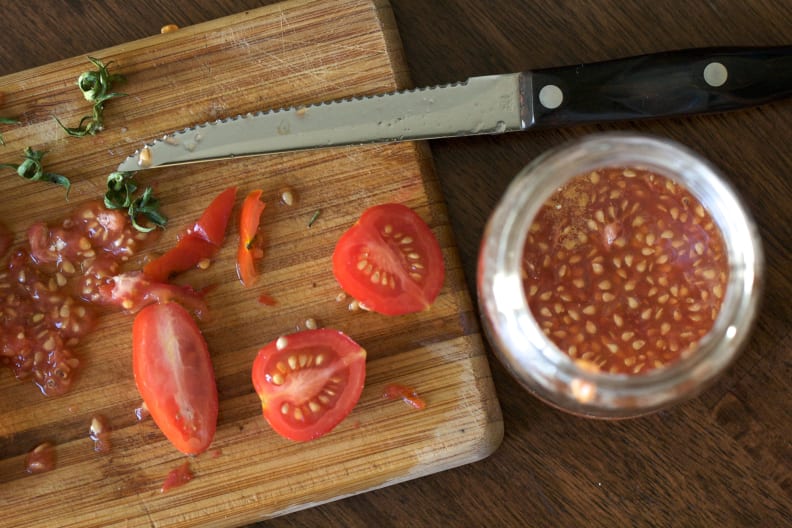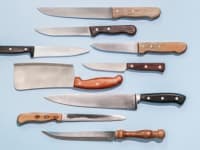 Credit:
Flickr user "cubedude27"
Credit:
Flickr user "cubedude27"
Products are chosen independently by our editors. Purchases made through our links may earn us a commission.
Recently, we tackled the subject of cleaning and caring for your cutting boards.
But before basic maintenance comes the decision: what kind of cutting board should I buy? There are a number of factors to consider—from sanitation to safety—when choosing your board, so let's walk through the major types.
Plastic

Unlike wood, plastic cutting boards can be safely sanitized in a dishwasher and cleaned with disinfectants such as bleach.
{{amazon name="3 Piece Plastic Cutting Board Set - Acrylic Polypropylene Plastic - Dishwasher Safe - 3 Plastic Chopping Boards with Juice Groove Lip and Handle - Non Slip Rubber Ends", asin="B00DKR1LR6", align="right"}} The biggest advantage plastic cutting boards have over wooden ones is that they can be safely washed and sanitized in a dishwasher. That's especially important considering they become markedly more susceptible to bacteria growth the longer they stay in use.
See, over time plastic cutting boards often develop deep grooves and crevices from the blades of knives—cozy homes for bacteria. Because this happens more readily to plastic than wood, the difference in long-term safety is pretty dramatic.
But in the short term, plastic can be submerged in water, scoured, and dishwasher-sanitized with ease. Wooden boards shouldn't be submerged, shouldn't go in the dishwasher, and are generally less flexible in terms of what you should cut on them.
That brings me to the most important point in this whole guide: Plastic cutting boards should be your go-to for meat, poultry, seafood, and eggs.
Should you decide to use the same cutting board for multiple meats or a post-meat round of veggies, be sure to thoroughly clean it first. For cleaning tactics, refer to our guide.
Then there's the price factor. Plastic boards don't last nearly as long as their wooden counterparts, but they're significantly cheaper. That means it's easy to buy more than one and rotate them throughout the cooking process.
Wood and Bamboo

Bamboo and wood cutting boards should handle the bulk of your workload when it comes to fruit, vegetables, and bread.
{{amazon name="Howard Products BBB012 Butcher Block and Cutting Board Oil, 12-Ounce", asin="B004G6X0J2", align="right"}} It may not mean seem important, but one of the biggest advantages of wooden cutting boards is their looks. Nothing ties a classy-looking kitchen together better than a nice maple or bamboo cutting board.
But you should also spare some thought for your knives. Wood and bamboo boards treat your blades better than most plastic boards. With this in mind, you should use wooden boards to handle the bulk of your veggie and bread workload, along with pretty much everything else that isn't in danger of cross-contamination.
{{brightcove '3426664857001'}}
Remember: Your typical wood cutting board requires far more aggressive maintenance than a plastic one. Be sure to clean it routinely, dry it upright, and if need be, apply the appropriate oils to its surface. More on that here.
Glass and Marble

This carrot is in need of a cut, but please don't do it on this glass cutting board.
Don't use these.
Glass, marble, and slate cutting boards will dull your blades faster than wood and plastic. Really, it's not even close.
Also, the sound of a knife scraping across a glass cutting board will scare all of your dinner guests out of the room, so unless that's what you're going for, steer clear.


